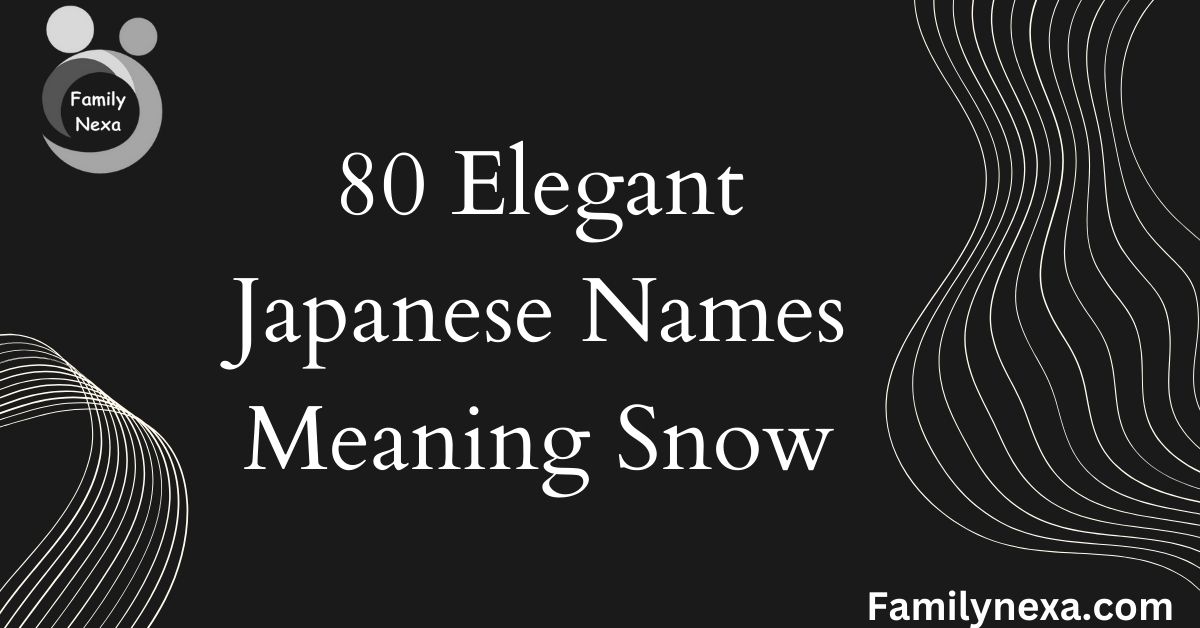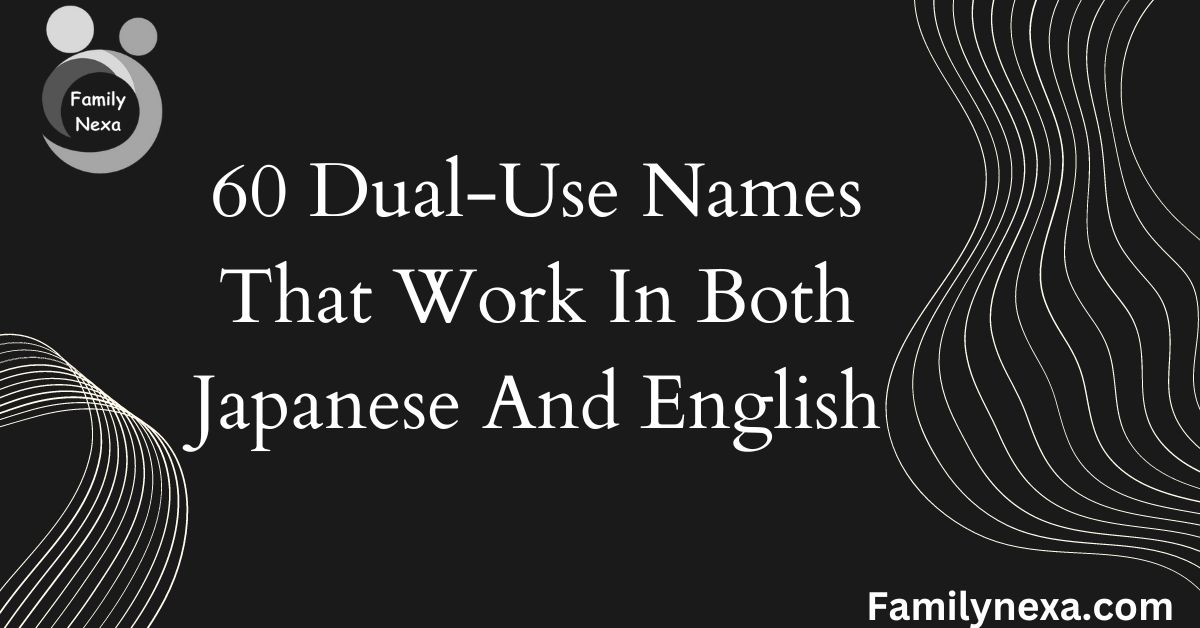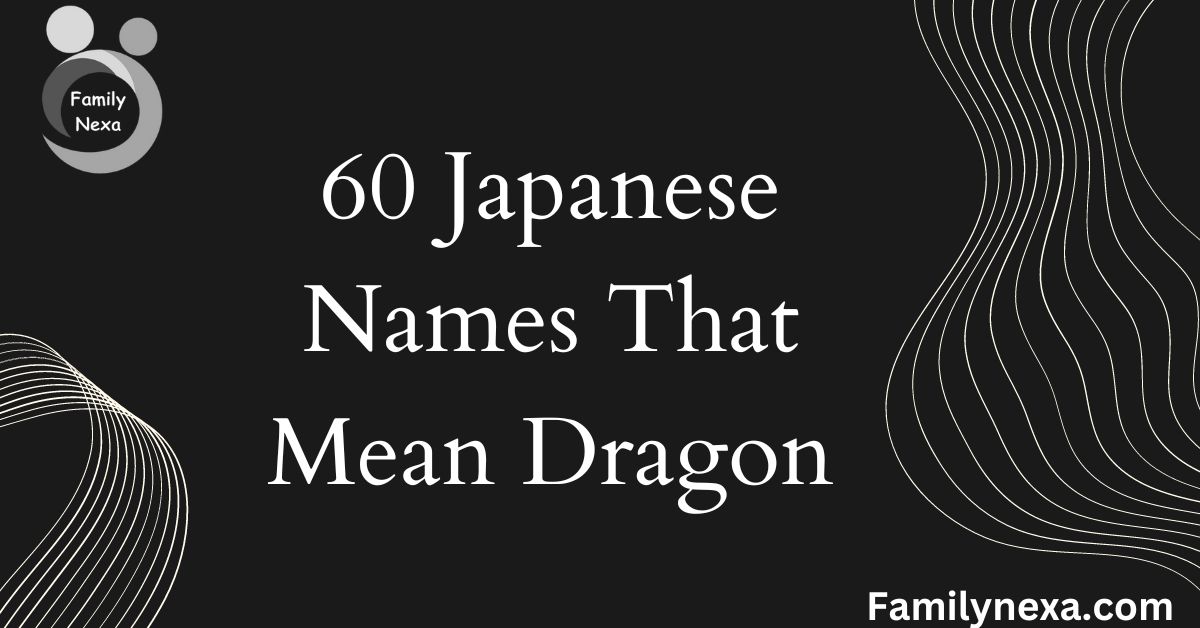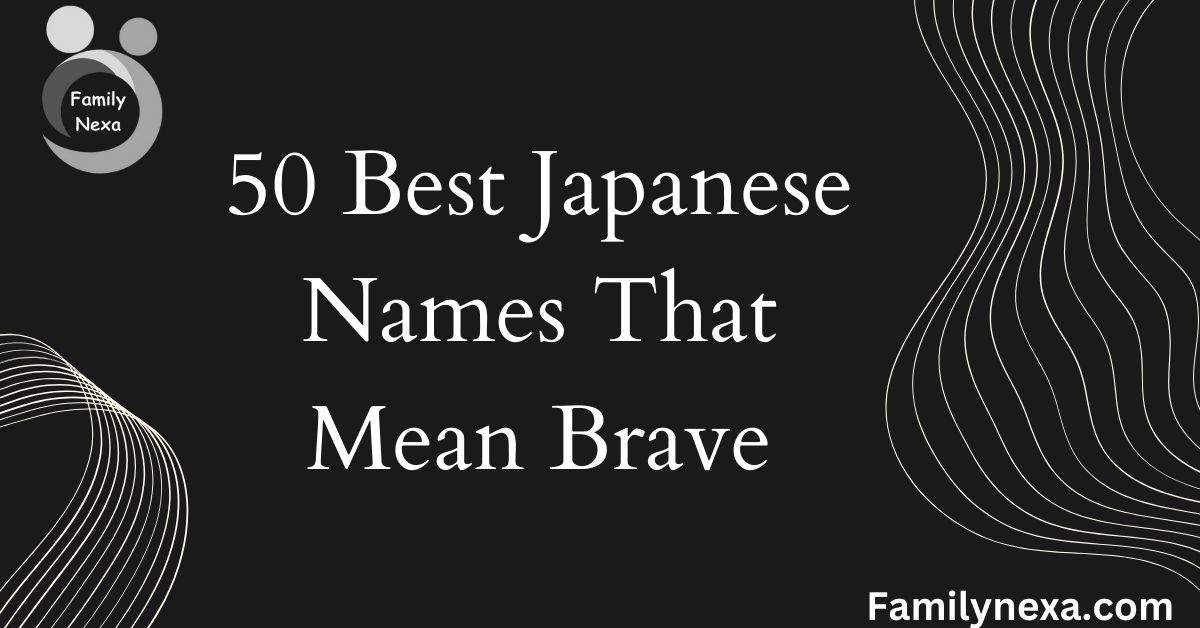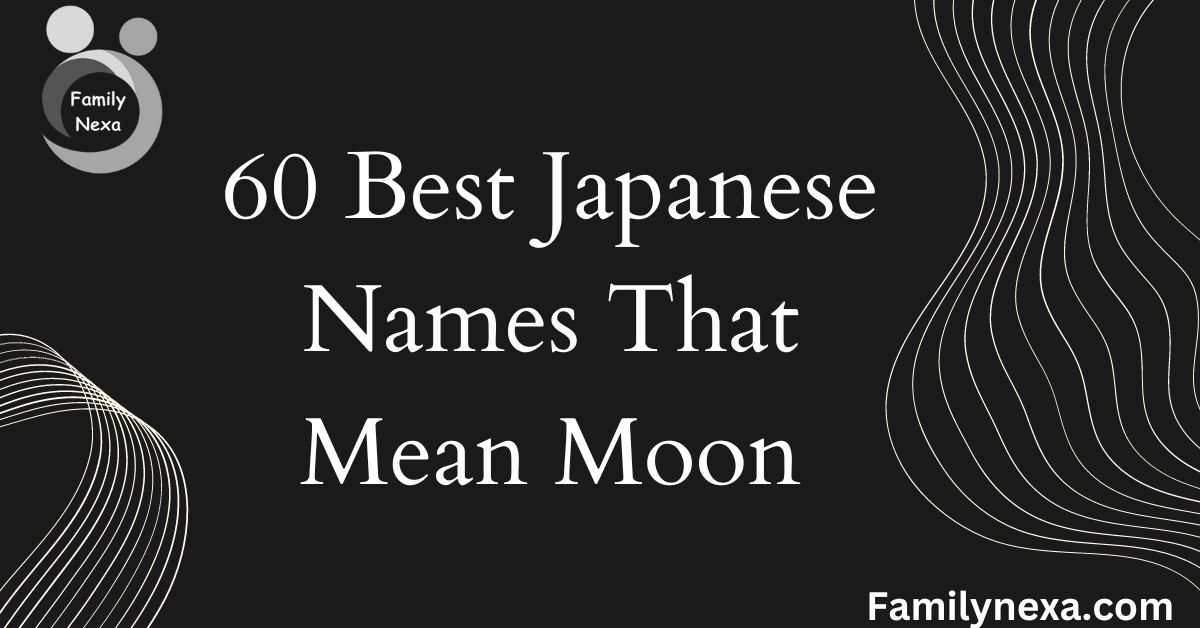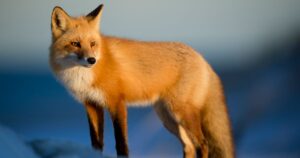Snow is beautiful. It is elegant as it falls from the sky. Some Japanese names describe the beauty of snow. These names are special. They have lovely meanings. Names meaning snow are popular for Japanese girls.
They sound very poetic. Some examples are Yukiko, Miyuki, and Sayuki. Yukiko combines “snow” and “child”. Miyuki means “beautiful snow”. Sayuki means “clear snow”. These names reflect winter’s wonder.
They have a quiet beauty. Names about snow are unique. They would fit a sweet Japanese girl. Her name will remind one of a gentle snowfall. It will suit a calm and lovely child.
26 Japanese Names That Mean Snow For Girls
Some beautiful Japanese names for girls relate to the elegance of falling snow. Names connected to snow work wonderfully for girls born in the cold winter months. Their wintry meanings give them a magical, seasonal feel. A little girl named Miyuki or Yukiko carries a name as lovely and pure as a fresh snowfall.
Some beautiful Japanese names for girls relate to the elegance of falling snow. Names connected to snow work wonderfully for girls born in the cold winter months. Their wintry meanings give them a magical, seasonal feel. A little girl named Miyuki or Yukiko carries a name as lovely and pure as a fresh snowfall.
1. Yuki
- Kanji:(ゆき)
- Pronunciation: yoo-kee
- Meaning: “snow”
- Yuki is a classic name symbolizing the purity and beauty of snow. It evokes a sense of serenity and calmness, much like the gentle fall of snowflakes, creating a name that reflects grace and tranquility.
2. Setsuna
- Kanji:(せつな)
- Pronunciation: seh-tsoo-nah
- Meaning: “moment; a time of falling snow”
- Setsuna signifies the fleeting yet beautiful moments when snow falls, capturing the ephemeral nature of winter’s embrace. It represents a person whose presence brings a sense of temporal beauty.
3. Koharu
- Kanji: (こはる)
- Pronunciation: koh-hah-roo
- Meaning: “small spring; snow beauty”
- Koharu combines the imagery of a small spring and the beauty of snow, suggesting a person whose essence is as refreshing and enchanting as the first snowfall of the season.
4. Miyuki
- Kanji: (みゆき)
- Pronunciation: mee-yoo-kee
- Meaning: “beautiful snow”
- Miyuki is a name that directly translates to “beautiful snow,” reflecting the elegance and charm associated with the delicate crystals that blanket the earth in winter.
5. Yukiko
- Kanji: (ゆきこ)
- Pronunciation: yoo-kee-koh
- Meaning: “child of snow”
- Yukiko embodies the innocence and purity reminiscent of a child born during the snowfall, symbolizing the delicate and pristine qualities of snow.
6. Fuyuko
- Kanji: (ふゆこ)
- Pronunciation: foo-yoo-koh
- Meaning: “winter child”
- Fuyuko signifies a child born in winter, highlighting the connection to the season of snow. It represents resilience and beauty in the midst of cold and frost.
7. Natsuki
- Kanji: (なつき)
- Pronunciation: naht-skee
- Meaning: “summer tree; snow”
- Natsuki carries the dual symbolism of a summer tree and snow, creating a unique contrast that suggests a person with a multifaceted and intriguing nature.
8. Haruka
- Kanji: (はるか)
- Pronunciation: hah-roo-kah
- Meaning: “distant; far-off”
- Haruka evokes the sense of distance, much like the gentle fall of snow from afar. It symbolizes a person with a dreamy and aspirational nature.
9. Yumiko
- Kanji: (ゆみこ)
- Pronunciation: yoo-mee-koh
- Meaning: “beautiful snow child”
- Yumiko combines the beauty of snow with the imagery of a child, creating a name that signifies innocence, loveliness, and the captivating charm of winter.
10. Makoto
- Kanji: (まこと)
- Pronunciation: mah-koh-toh
- Meaning: “sincerity; truth”
- Makoto, while not directly translating to snow, symbolizes the sincerity and purity akin to the pristine nature of snowflakes. It represents a person with genuine and authentic qualities.
11. Aika
- Kanji: (あいか)
- Pronunciation: eye-kah
- Meaning: “love song of the sea; love song of snow”
- Aika combines the love song of the sea with the romantic imagery of snow, suggesting a person with a poetic and enchanting presence that echoes the beauty of both elements.
12. Yumina
- Kanji: (ゆみな)
- Pronunciation: yoo-mee-nah
- Meaning: “snowy greens; snow vegetables”
- Yumina combines the concept of snowy greens or snow vegetables, symbolizing a person with a refreshing and vitalizing nature, much like the rejuvenation brought by snow.
13. Sorano
- Kanji: (そらの)
- Pronunciation: soh-rah-noh
- Meaning: “of the sky; of the snow”
- Sorano intertwines the elements of the sky and snow, creating a name that signifies a connection to both the celestial and the wintry, embodying a person with ethereal and cool qualities.
14. Yukina
- Kanji: (ゆきな)
- Pronunciation: yoo-kee-nah
- Meaning: “snow flower”
- Yukina combines the elegance of flowers with the purity of snow, creating a name that symbolizes beauty, delicacy, and the transient nature of both elements.
15. Rin
- Kanji: (りん)
- Pronunciation: reen
- Meaning: “dignified; cold”
- Rin reflects both dignity and the coldness associated with snow, creating a name that suggests a person with a composed and elegant demeanor, akin to the serene landscape of winter.
16. Nozomi
- Kanji: (のぞみ)
- Pronunciation: noh-zoh-mee
- Meaning: “hope”
- Nozomi symbolizes hope, much like the anticipation of a snowfall bringing renewal and tranquility. It represents a person with an optimistic and uplifting spirit.
17. Yukari
- Kanji: (ゆかり)
- Pronunciation: yoo-kah-ree
- Meaning: “connection; relationship”
- Yukari signifies the interconnectedness of relationships, much like the way snowflakes gather and form a blanket of snow. It represents a person who values and fosters meaningful connections.
18. Koyuki
- Kanji: (こゆき)
- Pronunciation: koh-yoo-kee
- Meaning: “little snow”
- Koyuki captures the endearing quality of small or little snowflakes, symbolizing a person with a charming and gentle nature, much like the soft descent of tiny snow crystals.
19. Yukiko
- Kanji: (ゆきこ)
- Pronunciation: yoo-kee-koh
- Meaning: “child of snow”
- Yukiko embodies the innocence and purity reminiscent of a child born during the snowfall, symbolizing the delicate and pristine qualities of snow.
20. Yuriko
- Kanji: (ゆりこ)
- Pronunciation: yoo-ree-koh
- Meaning: “lily child; child of the snow”
- Yuriko combines the symbolism of lilies with the purity of snow, creating a name that represents both floral elegance and the pristine qualities associated with winter.
21. Amane
- Kanji: (あまね)
- Pronunciation: ah-mah-neh
- Meaning: “sound of heaven; gentle sound of falling snow”
- Amane carries the celestial sound of heaven, suggesting a gentle and soothing presence reminiscent of the serene fall of snowflakes.
22. Yumeka
- Kanji: (ゆめか)
- Pronunciation: yoo-meh-kah
- Meaning: “dream; beautiful snow”
- Yumeka combines the concept of a dream with the beauty of snow, creating a name that signifies both imaginative depth and the enchanting qualities of winter.
23. Yuri
- Kanji: (ゆり)
- Pronunciation: yoo-ree
- Meaning: “lily; snowdrop”
- Yuri intertwines the symbolism of lilies and snowdrops, symbolizing purity, beauty, and the resilience of life even in the cold embrace of winter.
24. Natsumi
- Kanji: (なつみ)
- Pronunciation: naht-soo-mee
- Meaning: “summer beauty; beautiful snow”
- Natsumi combines the concept of summer beauty with the enchantment of snow, creating a name that signifies a person with a captivating and multi-faceted allure.
25. Sayuri
- Kanji: (さゆり)
- Pronunciation: sah-yoo-ree
- Meaning: “small lily; snow lily”
- Sayuri combines the charm of small lilies with the elegance of snow, creating a name that suggests a person with a delicate and graceful demeanor.
26. Kumiko
- Kanji: (くみこ)
- Pronunciation: koo-mee-koh
- Meaning: “long-time beautiful child; enduring snow”
- Kumiko signifies enduring beauty, akin to the lasting presence of snow, symbolizing a person with timeless grace and elegance.
32 Japanese Names That Mean Snow For Boys
1. Yuki
- Kanji: (ゆき)
- Pronunciation: yoo-kee
- Meaning: “snow”
- Yuki is a popular and simple name directly translating to “snow,” representing the purity and serenity associated with winter’s frozen beauty. It symbolizes a person with a calm and tranquil nature.
2. Setsu
- Kanji: (せつ)
- Pronunciation: setsu
- Meaning: “snow”
- Setsu is a concise and strong name meaning “snow.” It reflects a person with a straightforward and clear personality, akin to the simplicity and clarity of a snow-covered landscape.
3. Fuyuki
- Kanji: (ふゆき)
- Pronunciation: foo-yoo-kee
- Meaning: “winter; snow”
- Fuyuki encapsulates the essence of winter and snow, symbolizing resilience in the face of cold challenges. This name suggests a person with inner strength and adaptability, much like the endurance of winter.
4. Hatsuyuki
- Kanji: (はつゆき)
- Pronunciation: hah-tsoo-yoo-kee
- Meaning: “first snow”
- Hatsuyuki signifies the first snowfall, representing new beginnings and fresh starts. It symbolizes a person with a rejuvenating and transformative presence, much like the initial blanket of snow covering the earth.
5. Yukio
- Kanji: (ゆきお)
- Pronunciation: yoo-kee-oh
- Meaning: “snow boy”
- Yukio combines “snow” with the element “boy,” creating a name that symbolizes the purity and innocence associated with the first snowfall. It suggests a person with a youthful and untarnished spirit.
6. Kohaku
- Kanji: (こはく)
- Pronunciation: koh-hah-koo
- Meaning: “amber; red and white (like snow)”
- Kohaku’s meaning includes the colors associated with snow—red and white. It signifies a person with a warm and vibrant personality, reminiscent of the hues seen in a snowy landscape.
7. Yukito
- Kanji: (ゆきと)
- Pronunciation: yoo-kee-toh
- Meaning: “snow person”
- Yukito conveys the idea of a person shaped or influenced by snow, symbolizing adaptability and a cool, composed demeanor. It suggests a person who remains calm and collected even in challenging situations.
8. Setsuto
- Kanji: (せつと)
- Pronunciation: set-soo-toh
- Meaning: “snow and independence”
- Setsuto combines “snow” with the concept of independence, symbolizing a person with a strong and self-reliant character, much like the resilience of snow in its individuality.
9. Tsumoru
- Kanji: (つもる)
- Pronunciation: tsoo-moh-roo
- Meaning: “to pile up; to accumulate”
- Tsumoru reflects the accumulation and layering of snow, suggesting a person with a depth of character and experiences. It symbolizes resilience and the ability to overcome challenges by building upon one’s strengths.
10. Yukinobu
- Kanji: (ゆきのぶ)
- Pronunciation: yoo-kee-noh-boo
- Meaning: “faith in snow”
- Yukinobu combines “snow” with the concept of faith, symbolizing trust in the enduring and transformative qualities of winter. It suggests a person with unwavering confidence in the positive changes that can come from challenges, much like the melting of snow leading to new life.
11. Setsuya
- Kanji: (せつや)
- Pronunciation: set-soo-yah
- Meaning: “snow night”
- Setsuya combines “snow” with the element “night,” creating a name that suggests a person with a serene and mysterious presence, much like the quiet beauty of a snowy night.
12. Yukizane
- Kanji: (ゆきざね)
- Pronunciation: yoo-kee-zah-neh
- Meaning: “snow summit”
- Yukizane combines “snow” with the concept of a summit or peak, symbolizing a person with lofty aspirations and the determination to reach the heights of their goals.
13. Fuyuhiko
- Kanji: (ふゆひこ)
- Pronunciation: foo-yoo-hee-koh
- Meaning: “winter prince”
- Fuyuhiko combines “winter” with the concept of a prince, suggesting a person with regal qualities, elegance, and a commanding presence associated with the winter season.
14. Yukihiko
- Kanji: (ゆきひこ)
- Pronunciation: yoo-kee-hee-koh
- Meaning: “snow prince”
- Yukihiko directly translates to “snow prince,” symbolizing a person with a royal and dignified character, akin to the serene and majestic qualities of falling snow.
15. Tsurara
- Kanji: (つらら)
- Pronunciation: tsoo-rah-rah
- Meaning: “icicle”
- Tsurara symbolizes the delicate and crystalline nature of icicles, reflecting a person with a unique and intricate personality, much like the intricate formations of ice.
16. Yukigiri
- Kanji: (ゆきぎり)
- Pronunciation: yoo-kee-gee-ree
- Meaning: “snow mist”
- Yukigiri combines “snow” with the concept of mist, creating a name that suggests a person with a subtle and enchanting aura, akin to the ethereal beauty of snowfall.
17. Sesshin
- Kanji: (せっしん)
- Pronunciation: seht-shin
- Meaning: “snow heart”
- Sesshin combines “snow” with the concept of the heart, symbolizing a person with a cool and composed demeanor, yet possessing a warm and compassionate core.
18. Yukisada
- Kanji: (ゆきさだ)
- Pronunciation: yoo-kee-sah-dah
- Meaning: “snow forever”
- Yukisada combines “snow” with the idea of permanence, suggesting a person with enduring qualities, resilience, and a lasting impact on others.
19. Fubuki
- Kanji: (ふぶき)
- Pronunciation: foo-boo-kee
- Meaning: “blizzard”
- Fubuki represents the powerful and dynamic nature of a blizzard, symbolizing a person with strength, intensity, and the ability to overcome challenges with force and determination.
20. Yukishiro
- Kanji: (ゆきしろ)
- Pronunciation: yoo-kee-shee-roh
- Meaning: “white snow castle”
- Yukishiro combines “snow” with the imagery of a white castle, creating a name that signifies purity, strength, and the regal qualities associated with a snow-covered fortress.
21. Yukimasa
- Kanji: (ゆきまさ)
- Pronunciation: yoo-kee-mah-sah
- Meaning: “snow nobility”
- Yukimasa combines “snow” with the concept of nobility, suggesting a person with refined character, grace, and a sense of honor associated with the wintry landscape.
22. Setsugo
- Kanji: (せつご)
- Pronunciation: set-suu-go
- Meaning: “after the snow”
- Setsugo symbolizes the tranquility and purity that follows a snowfall, suggesting a person with a calm and refreshing presence, bringing clarity and serenity to those around them.
23. Yukikazu
- Kanji: (ゆきかず)
- Pronunciation: yoo-kee-kah-zoo
- Meaning: “countless snowflakes”
- Yukikazu reflects the multitude of snowflakes, symbolizing a person with a diverse and intricate personality, much like the unique and countless formations of snow crystals.
24. Sorayuki
- Kanji: (そらゆき)
- Pronunciation: soh-rah-yoo-kee
- Meaning: “snow from the sky”
- Sorayuki combines “sky” with “snow,” creating a name that signifies a person with ethereal and celestial qualities, much like the gentle fall of snow from the heavens.
25. Hatsunori
- Kanji: (はつのり)
- Pronunciation: haht-soo-noh-ree
- Meaning: “first of the snow”
- Hatsunori symbolizes the significance of being the first snow, suggesting a person with a pioneering spirit, bringing freshness and novelty to their endeavors.
26. Yukitaka
- Kanji: (ゆきたか)
- Pronunciation: yoo-kee-tah-kah
- Meaning: “tall as the snow”
- Yukitaka combines “snow” with the concept of height, symbolizing a person with lofty aspirations, stature, and a commanding presence reminiscent of snow-covered peaks.
27. Fuyusuke
- Kanji: (ふゆすけ)
- Pronunciation: foo-yoo-skeh
- Meaning: “winter assistance”
- Fuyusuke combines “winter” with the idea of assistance, suggesting a person who brings support, warmth, and helpfulness during the cold and challenging times of life.
28. Yukifumi
- Kanji: (ゆきふみ)
- Pronunciation: yoo-kee-foo-mee
- Meaning: “snow footprint”
- Yukifumi combines “snow” with the concept of footprints, symbolizing the impact and lasting impressions a person can leave, much like the imprints left in the snow.
29. Kōyuki
- Kanji: (こうゆき)
- Pronunciation: koh-yoo-kee
- Meaning: “light snowfall”
- Kōyuki embodies the gentle and light nature of snowfall, suggesting a person with a subtle, soothing, and unobtrusive presence.
30. Yukihide
- Kanji: (ゆきひで)
- Pronunciation: yoo-kee-hee-deh
- Meaning: “snow-covered excellence”
- Yukihide combines “snow” with the concept of excellence, symbolizing a person with outstanding qualities and a pristine, refined character.
31. Hatsutaka
- Kanji: (はつたか)
- Pronunciation: haht-soo-tah-kah
- Meaning: “first high; first snowfall”
- Hatsutaka signifies the elevated and distinctive qualities associated with being the first snowfall, suggesting a person with uniqueness and a pioneering spirit.
32. Yukikuni
- Kanji: (ゆきくに)
- Pronunciation: yoo-kee-koo-nee
- Meaning: “snow country”
- Yukikuni represents the imagery of a land covered in snow, symbolizing a person deeply connected to nature, tranquility, and the serene beauty of winter.
22 Gender-Neutral Japanese Names That Mean Snow
1. Yukimi
- Kanji: (ゆきみ)
- Pronunciation: yoo-kee-mee
- Meaning: “snow beauty”
- Yukimi combines “snow” with “beauty,” creating a name that signifies a person with a serene and enchanting presence, much like the quiet elegance of falling snowflakes.
2. Hatsuyuki
- Kanji: (はつゆき)
- Pronunciation: hah-tsoo-yoo-kee
- Meaning: “first snow”
- Hatsuyuki embodies the purity and freshness associated with the initial snowfall, suggesting a person with a spirit of new beginnings and a pristine, untarnished nature.
3. Yukio
- Kanji: (ゆきお)
- Pronunciation: yoo-kee-oh
- Meaning: “snow person”
- Yukio combines “snow” with the element “person,” creating a name that symbolizes the purity and innocence associated with the first snowfall, applicable to all genders.
4. Setsuna
- Kanji: (せつな)
- Pronunciation: seh-tsoo-nah
- Meaning: “moment; a time of falling snow”
- Setsuna represents the fleeting yet beautiful moments when snow falls, creating a name that suggests a person with an appreciation for the transient beauty of nature.
5. Fuyu
- Kanji: (ふゆ)
- Pronunciation: foo-yoo
- Meaning: “winter; snow”
- Fuyu directly translates to “winter” or “snow,” symbolizing the cool and calm qualities associated with the winter season, making it a gender-neutral choice reflecting the essence of snow.
6. Yukitaro
- Kanji: (ゆきたろう)
- Pronunciation: yoo-kee-tah-roh
- Meaning: “snow boy”
- Yukitaro combines “snow” with the element “boy,” creating a name that symbolizes the innocence and purity of snow, suitable for individuals of any gender.
7. Yukihiro
- Kanji: (ゆきひろ)
- Pronunciation: yoo-kee-hee-roh
- Meaning: “bountiful snow”
- Yukihiro signifies an abundance of snow, suggesting a person with qualities that are plentiful, refreshing, and transformative, much like a generous snowfall.
8. Yukari
- Kanji: (ゆかり)
- Pronunciation: yoo-kah-ree
- Meaning: “connection; relationship”
- Yukari combines “snow” with the concept of connections, symbolizing a person with a network of relationships as intricate and unique as the patterns in snowflakes.
9. Yuzuru
- Kanji: (ゆずる)
- Pronunciation: yoo-zoo-roo
- Meaning: “tender snow; snowfall”
- Yuzuru combines “tender snow” with the concept of a snowfall, creating a name that reflects a person with a gentle, calming influence on others.
10. Yukika
- Kanji: (ゆきか)
- Pronunciation: yoo-kee-kah
- Meaning: “beautiful snow”
- Yukika combines “snow” with the concept of beauty, symbolizing a person whose qualities are as enchanting and captivating as the beauty found in snow-covered landscapes.
11. Yukito
- Kanji: (ゆきと)
- Pronunciation: yoo-kee-toh
- Meaning: “snow person”
- Yukito conveys the idea of a person shaped or influenced by snow, symbolizing adaptability and a cool, composed demeanor. It is a name suitable for any gender.
12. Setsuto
- Kanji: (せつと)
- Pronunciation: set-soo-toh
- Meaning: “snow and independence”
- Setsuto combines “snow” with the concept of independence, symbolizing a person with a strong and self-reliant character, suitable for individuals of any gender.
13. Haruka
- Kanji: (はるか)
- Pronunciation: hah-roo-kah
- Meaning: “distant; far-off”
- Haruka evokes the sense of distance, much like the gentle fall of snow from afar. It symbolizes a person with a dreamy and aspirational nature, regardless of gender.
14. Yukine
- Kanji: (ゆきね)
- Pronunciation: yoo-kee-neh
- Meaning: “snow sound; sound of snowfall”
- Yukine combines “snow” with the concept of sound, creating a name that suggests a person with a serene and soothing presence, much like the sound of falling snow.
15. Yukiharu
- Kanji: (ゆきはる)
- Pronunciation: yoo-kee-hah-roo
- Meaning: “clear snow; snow in spring”
- Yukiharu combines “clear snow” with the concept of snow in spring, symbolizing a person with qualities that are pure, refreshing, and bring a sense of renewal.
16. Yukiko
- Kanji: (ゆきこ)
- Pronunciation: yoo-kee-koh
- Meaning: “child of snow”
- Yukiko embodies the innocence and purity reminiscent of a child born during the snowfall, symbolizing the delicate and pristine qualities of snow.
17. Yukinori
- Kanji: (ゆきのり)
- Pronunciation: yoo-kee-noh-ree
- Meaning: “snow’s principles”
- Yukinori combines “snow” with the concept of principles, symbolizing a person with a principled and steadfast character, suitable for individuals of any gender.
18. Sora
- Kanji: (そら)
- Pronunciation: soh-rah
- Meaning: “sky; heaven”
- Sora embodies the vast expanse of the sky, symbolizing the boundless potential and limitless spirit associated with the snowy heavens. It is a gender-neutral name reflecting celestial qualities.
19. Yukigami
- Kanji: (ゆきがみ)
- Pronunciation: yoo-kee-gah-mee
- Meaning: “snow deity”
- Yukigami combines “snow” with the concept of a deity, symbolizing a person with a divine and ethereal nature, suitable for individuals of any gender.
20. Sesshō
- Kanji: (せっしょう)
- Pronunciation: seht-shoh
- Meaning: “snow crystal”
- Sesshō combines “snow” with the concept of a crystal, creating a name that symbolizes the unique, intricate, and delicate qualities of an individual, much like a snow crystal.
21. Yukari
- Kanji: (ゆかり)
- Pronunciation: yoo-kah-ree
- Meaning: “snow clarity; connection”
- Yukari combines “snow” with the concept of clarity and connection, symbolizing a person whose presence brings clear understanding and fosters meaningful relationships, making it suitable for any gender.
22. Yukito
- Kanji: (ゆきと)
- Pronunciation: yoo-kee-toh
- Meaning: “snow person”
- Yukito conveys the idea of a person shaped or influenced by snow, symbolizing adaptability and a cool, composed demeanor. It is a name suitable for any gender, representing the enduring qualities of snow in an individual’s character.
Frequently Asked Questions
8 Ideas to Craft a Perfect Japanese Name That Means Snow
Here are 8 ideas to craft a perfect Japanese name for a girl that means snow:
- Choose kanji characters with snow-related meanings like 雪 (yuki) meaning snow or 杉 (sugi) meaning cedar tree.
- Combine the kanji for snow with a character meaning child, flower, beauty, white, calm, grace, peace, etc.
- Some good pairings are yuki + ko (child), yuki + mi (beauty), yuki + na (vegetable or flower).
- Look up Japanese names dictionaries for common combos like Yukiko, Miyuki, Sayuki, Koyuki.
- Pick a melodic name that flows nicely like Yukari, Yukina, Yukinari for a lyrical feel.
- Ensure the meanings reflect positive qualities you want your daughter to embody.
- For a creative spin try snow inspired by nature – lake snow (Mizuyuki) or mountain snow (Yamayuki).
- Consult with a native Japanese speaker to check whether the name sounds natural and has an appropriate meaning.
7 Reasons To Have A Japanese Name That Means Snow
Here are 7 reasons why a Japanese name meaning snow is a great choice for a baby girl:
- Snow evokes feelings of tranquility, elegance and purity – wonderful meanings for a child.
- A snow name connects the child to the beauty and magic of winter.
- It sounds poetic, soft and lyrical.
- It embraces Japanese culture and sounds unique.
- Names like Yukiko and Miyuki have lovely symbolism.
- The soothing imagery of gently falling snowflakes suits a peaceful child.
- A snow name is perfect for a winter baby, conjuring up their birth season.
Final Thoughts
Snow is beautiful and elegant. Some Japanese names describe snow. These names are very poetic. They make good names for girls. Examples are Yukiko, Miyuki and Sayuki. Yukiko means “snow child.” Miyuki means “beautiful snow.” Sayuki means “clear snow.”
These snow names are special. They sound magical. They are perfect for a calm, sweet girl. A name like Miyuki is lovely for a winter baby. It reminds one of falling snow. It suits a girl with a gentle spirit. Japanese snow names are unique. They have wonderful meanings. They connect girls to winter’s beauty. A girl named Yukiko or Sayuki has an elegant name. Her name reflects the grace of a fresh snowfall.
Related:
70 Japanese Names That Mean Fire
70 Unique Japanese Names That Mean Death
80 Mystic Japanese Names With Dark Meaning(Must-See)

I am Emma, a skilled writer and SEO expert. With years of experience in both fields, I love writing helpful articles readers love. I also want the articles to show up high on Google.
My goal is to make content that is both interesting and easy to find online.
I work hard to research topics, choose the right words, and organize information clearly.
